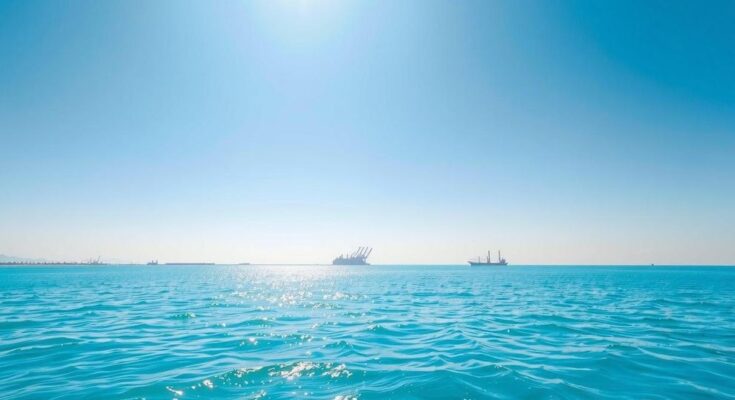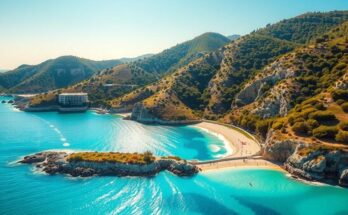Qatari Prime Minister Sheikh Mohammed bin Abdulrahman Al Thani warned that strikes on Iran’s nuclear sites could impact water supply in the Gulf, affecting millions. He called for diplomatic solutions to avoid military conflict while U.S. President Donald Trump expressed the intent to negotiate a new nuclear deal. Meanwhile, Iran denies nuclear weapon ambitions, and Russia offers to mediate the situation.
In a recent statement, Qatari Prime Minister Sheikh Mohammed bin Abdulrahman Al Thani cautioned that any military strike on Iran’s nuclear facilities could severely contaminate the Gulf’s water supply, endangering the lives of people in Qatar, the United Arab Emirates, and Kuwait. This warning is particularly significant given that these regions depend on the Gulf’s waters for sustenance, relying on natural reserves that serve over 18 million inhabitants.
Sheikh Mohammed expressed dire concerns regarding the consequences of an attack, stating, “no water, no fish, nothing … no life” in the Gulf. The Prime Minister has advocated for a diplomatic resolution to prevent any potential military actions against Iran, which he believes could lead to wider conflicts within the region. He emphasized, “There is no way that Qatar would support any kind of military step … we will not give up until we see a diplomatic solution.”
Meanwhile, U.S. President Donald Trump has indicated a desire to negotiate a new nuclear agreement with Iran, suggesting both nations engage in dialogue. He has also stated his intention to impose significant economic pressure on Iran, reminiscent of tactics from his initial term.
Iranian leadership has unequivocally denied any intentions of pursuing nuclear weapons, asserting their stance in recent discussions. Concurrently, Russia has offered its mediation services to facilitate negotiations between the U.S. and Iran, with Deputy Foreign Minister Sergei Ryabkov engaging with Iranian officials to address the nuclear program’s status and related tensions.
The statements made by Sheikh Mohammed underscore the profound implications military action against Iran could have on the Gulf region, particularly concerning water safety and public health. His calls for diplomacy reflect the broader need for peaceful resolutions to sustain regional stability. Concurrently, shifting political dynamics in the U.S.-Iran relationship and Russia’s involvement indicate that the situation remains fluid and multifaceted, requiring careful navigation to avoid escalation.
Original Source: en.tempo.co




